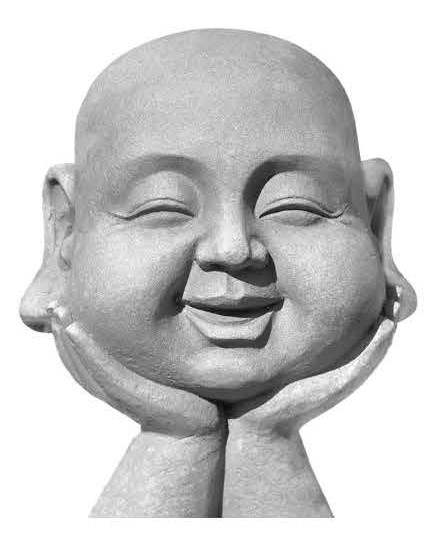
Humor
And if I laugh at any mortal thing, ’tis that I may not weep.
— Lord Byron in Don Juan
Introduction
Thomas Moore (1779-1852) understood Lord Byron’s insight. “Humor is a sign of comfort with the unpredictable ways of God and nature.”[i]
“Gritty sadness and guileless humor are blood brothers. One may often be found in the company of the other. Together they keep the soul intact. They are a kind of yin and yang that heals by spreading emotional glue on the many splits and divisions that show as pain. You may win this deep humor by your pain, suffering, and endurance.”[ii]
Ram Dass (1931-2019) felt that Buddha embodied the intersection of compassion and humor. “[There] is a humor that is filled with compassion. It is reflected in the tiny upturn in the mouth of the Buddha, for he sees the humor in the universal predicament: all beings are lost in illusion, yet he knows that they will awaken from that illusion for they are, at heart, already enlightened. He knows that what seems so hard to them is from another perspective, their own path to liberation.”[iii]
And let’s not forget humor from Dilbert, with thanks to Scott Adams:
Wally: “A deep understanding of reality is exactly the same thing as laziness.”
Asok: “That can’t be right.”
Wally: “Have you ever seen a statue of Buddha jogging?”
Humor
[i] Moore, Thomas. Dark Nights of the Soul. New York: Gotham. 2004, page 104.
[ii] Ibid., page 284.
[iii] Dass, Ram. Journey of Awakening. New York: Bantam. 1978, page 203.
_________________________________________________________
Humor Table of Contents
- Stand-Up and Be Counted
- Polite Suicide Prevention
- The Agonies of Mark Twain
- Read ’em an’ Weep
- Blood Brothers
- You’re Out!
_________________________________________________________
Find a much more in-depth discussion in books by Roy Charles Henry.


